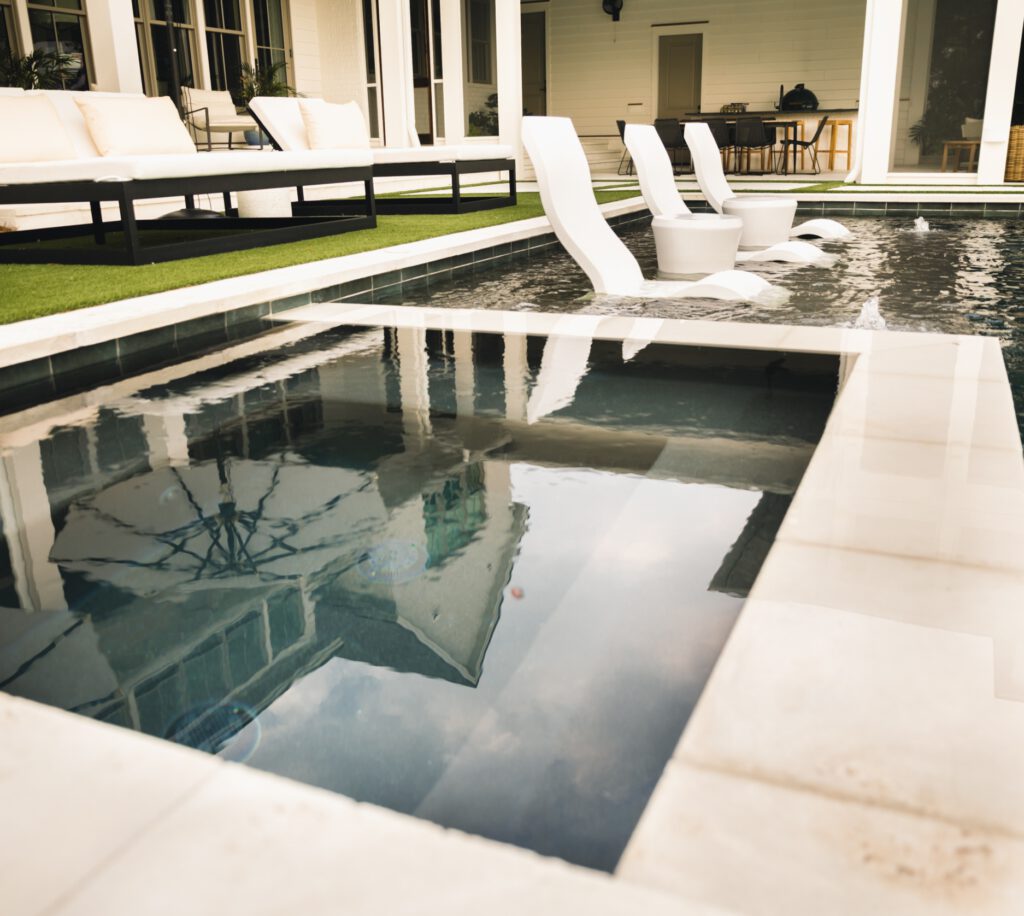What to Consider When Planning a Pool Project

Congratulations, you’re ready to take the plunge into pool ownership. But where do you start? We’re breaking down 5 critical steps you should take when considering your pool project.
- Find the Right Builder.
Planning a pool build usually begins with engaging a professional designer or builder in your local area. Most often word of mouth and personal referrals are the best way to find builders but if you’re new to the area you’re living in, it’s best to do your homework on finding the right builder to bring your project to life. The right builder will have knowledge of local codes, regulations, materials, and trades to help you make informed decisions. Make sure you understand the service range your builder has and any limitations up front. Ask for references you can speak to and any pools you can see in person. Discuss your budget and timelines to ensure full transparency is met. The beginning process of a pool can take weeks to months, all depending on the complexity of the project design. Much like building a home, the pool process involves active engagement and communication between yourself and the pool builder so choose wisely. - Look into your known limitations.
Consider your local zoning laws in your area. Some local municipalities have strict regulations on pool placement and construction so it’s important to inquire about this up front. If you don’t know it, make sure to ask your builder about their knowledge of the local codes. If you live in a private neighborhood, you should do your due diligence to learn what pool (if any) is allowed in your neighborhood. Your local Homeowners Association or Architectural Review Board will provide you with guidelines for building a pool within their community. All of these guidelines will be required to be met before your builder can obtain a building permit to begin construction. - Know your budget
The cost to build pools have changed considerably over the years. Although many things in the construction process have become more efficient, the market largely affects the cost to build a pool. It’s important to have a known budget up front and communicate that to your builder. The largest mistake you can make is to tell your builder you have no budget unless you truly do not. The right builder will be transparent in telling you what’s achievable within your budget. - Research what style pool you like
With a known budget, you can quickly dial in what type and size of pool suits you. In-ground pools range from liner, fiberglass, to concrete. Liner being the least expensive with design limitation and concrete being most expensive but fully customizable. Costs of pool significantly vary based on the size, type of pool, and desired features. - Understand your other non-pool related costs
Building a pool is a large project and investment. Most often there will be an end of scope for your pool builder so it’s important to understand where the line in the sand is of what your pool builder covers and what’s your other costs associated with your project. Local regulations again should be considered here. Specific regulations regarding pool fencing, gates, and door alarms should be known. If you live in an area that requires either a fence or a cover to pass your permit inspection, the costs associated with that should be considered in your overall budget. Other items like increased insurance, landscaping, irrigation, lighting, decking, or professional fees should also be considered.